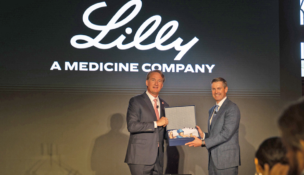Health Diagnostic Laboratory touts report
After a series of recent setbacks, Health Diagnostic Laboratory Inc. (HDL) in Richmond announced some good news Monday: an independent analysis showed positive results from its model of health-care management.
A group of nearly 7,400 patients receiving laboratory testing paired with personalized lifestyle consulting from HDL saw a 41 percent decrease in incidence of heart attacks and significantly lower occurrence of diabetes complications, according to an analysis of insurance claims data.
Optum – UnitedHealth Group’s health services arm – and University of Richmond researchers examined how well HDL's biomarker risk testing paired with direct patient engagement and physician promoted positive health and cost outcomes. The study spanned a mean follow-up period of 27 months (with a range of 12 to 42 months).
“The results provide strong evidence that Health Diagnostic Laboratory's model of health management is associated with positive health outcomes. There were very interesting patterns in the data,” Steve Thompson, associate professor of management at the Robins School of Business at the University of Richmond and lead author of the study, said in a statement. “First, improvements in outcomes emerged in a relatively short time frame. Second, although laboratory costs increased, the costs were entirely offset by an expenditure shift away from other medical costs such as emergent care.”
The study follows a tumultuous series of events. HDL Co-founder and CEO Tonya Mallory stepped down suddenly in September, citing family reasons. Her departure came while HDL is under investigation as part of a federal investigation into reimbursement practices in the clinical laboratory industry.
In October, Connecticut-based health insurer Cigna sued the company, seeking to recover $84 million in insurance claims paid to HDL.
Last month, in a bid to return to its core mission of diagnostic testing, HDL announced that it was cutting its overall staff by 132 people, or about 15 percent of its work force nationwide. Before the layoffs, more than 700 people worked at the company’s downtown Richmond headquarters.
The study results announced Monday involved 7,396 patients receiving HDL services who were matched by demographic, clinical and cost parameters to a group patients who did not receive testing or health management from the Richmond-based company. In addition to the reduction in heart attacks – 49 in the HDL group compared with 83 in the control group – clinical outcomes for strokes trended lower by 17 percent, while diabetes complications were 15 percent less frequent. In addition, inpatient admissions fell by 21 percent and ER visits were 6 percent less frequent in the HDL group.
The key finding was that individuals diagnosed with cardiovascular and cardiometabolic diseases or risk factors for disease by HDL experienced fewer adverse events and better health outcomes at no additional cost: total cost of care was $950 per patient per month in the HDL group compared to $957 in the controls.


















